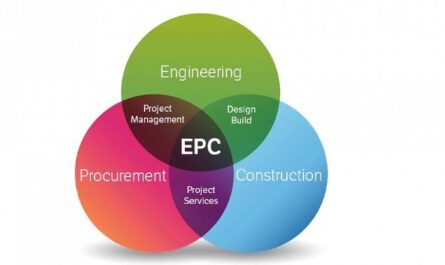The modern global supply chain relies on a foundation of quality control and regulatory compliance. From raw materials to finished goods, products and components cross international borders as they make their way from production to the consumer. Ensuring the safety, legality and performance of imports and exports at every stage requires standardized testing, rigorous inspection and official certification. This vital work is performed by the multibillion-dollar Testing, Inspection, and Certification (TIC) industry.
Evaluating Components and Materials
The first link in any supply chain is the sourcing of raw materials and components. As producers search worldwide for the best options to use in manufacturing, consistency and quality must be guaranteed. TIC providers conduct laboratory testing and on-site assessments of potential suppliers. Chemical composition, material properties, country of origin and other attributes are evaluated to strict specifications. Non-destructive tests like x-rays capture internal flaws while durability trials prove components can withstand stresses like vibration, heat, cold and impact. Only materials meeting design and regulatory standards can advance to the next phase of production.
factory-floor operations, equipment and facilities themselves also demand regular evaluation. Factory audits analyze production processes, record-keeping, worker safety protocols and environmental management systems. Compliance with technical and legal requirements ensures products are made correctly using approved techniques and materials. Any issues uncovered through these assessments must be rectified before manufacturing can continue or expand. Quality management certifications demonstrate a sustained commitment and ability to consistently deliver conforming goods.
certified containers, tankers, bulk carriers and other vessels routinely transport goods between nations by sea, air and road. To safeguard cargo, crews and the environment, marine classifications societies routinely inspect ships for structural integrity, propulsion systems, lifesaving appliances and pollution prevention equipment. Only those found seaworthy receive certification to ply international shipping lanes and ports. Transport infrastructure like highways, bridges, tunnels and yards also undergo periodic audits against construction and maintenance benchmarks.
finished products pass final inspection as well. Hundreds of conformity assessments occur daily as items destined for global markets are scrutinized. Electrical, electronic and mechanical goods have components analyzed and functions tested to verify advertised specifications. Packaging, labeling, instruction manuals and other accompanying documentation are reviewed for compliance with language, symbols, warnings and claims regulations in target countries and regions. Certificates of compliance accompany shipments as proof quality standards were satisfied before distribution.
facilitate global commerce provide a vital safeguard for consumers and regulatory bodies worldwide. Instead of inspectors at every border, mutual recognition of accredited certifiers’ seals and marks allows efficient clearance of legitimate imports. National authorities can focus resources on anomalous shipments and known risks while legitimate trade flows smoothly. Regular audits also help factories continuously enhance production to meet rising quality expectations. An effective testing, inspection, and certification (TIC) industry thus lubricates international business while maintaining public trust through quality assurance and conformity every step of the way.
Standardization Simplifies Operations
Adopting harmonized standards streamlines the work of testing and certification bodies as well as the companies they serve. When materials, components, manufacturing processes, finished goods characteristics and documentation are evaluated against identical protocols globally, consistency is achieved. Identical audits and inspections can occur in different locations, significantly improving efficiency. Common certification marks translate qualifications between markets, avoiding redundancy.
Conformity assessment to internationally-agreed benchmarks also helps companies navigate an increasingly complex regulatory landscape. Rather than face unique requirements in each territory, single approvals open many doors simultaneously. Standardized protocols give suppliers, producers and importers clear guidelines to follow with predictable outcomes. Confidence in the impartiality and competence of accredited certifiers recognizes qualifications across borders as well. With a level playing field worldwide, global trade flows unimpeded through mutual understanding.
Digital Transformation Accelerates Services
The TIC industry now leverages new technologies to further streamline processes and meet rising demand. Online platforms connect testing laboratories, inspectors, auditors and certified clients for project management and document sharing in real time. Remote auditing uses video conference tools to evaluate factory operations from any location, lowering travel requirements. Sensors and smart tags embedded in products and packaging transmit compliance data digitally, doing away with printed forms. Blockchain ensures certification histories cannot be altered or duplicated illegitimately.
Artificial intelligence and automation also boost efficiency. Software analyzes defect patterns to recommend improved quality techniques. Robots mimic human motions for consistent, round-the-clock durability testing. Digital twins of products and production linesModel complex interactions for virtual pre-qualification.These advances empower TIC providers to certify more operations simultaneously while maintaining meticulous standards. As global trade drives economic growth worldwide, digital transformation sustains an reliable infrastructure of quality control beneath.
Digital transformation supports a dynamic future for the testing, inspection, and certification (TIC) industry. While traditional hands-on processes will always have their place, new technologies streamline mundane tasks and remote access. This evolution builds capacity to accommodate rising volumes of international commerce. Consumers everywhere ultimately benefit as accredited professionals uphold safety and performance standards that underpin global trade networks. Standardization and digital innovation maintain qualification frameworks sustaining prosperity for all.
*Note:
- Source: Coherent Market Insights, Public Source, Desk Research
- We have leveraged AI tools to mine information and compile it
About Author:
Money Singh is a seasoned content writer with over four years of experience in the market research sector. Her expertise spans various industries, including food and beverages, biotechnology, chemical and materials, defense and aerospace, consumer goods, etc. (https://www.linkedin.com/in/money-singh-590844163)




